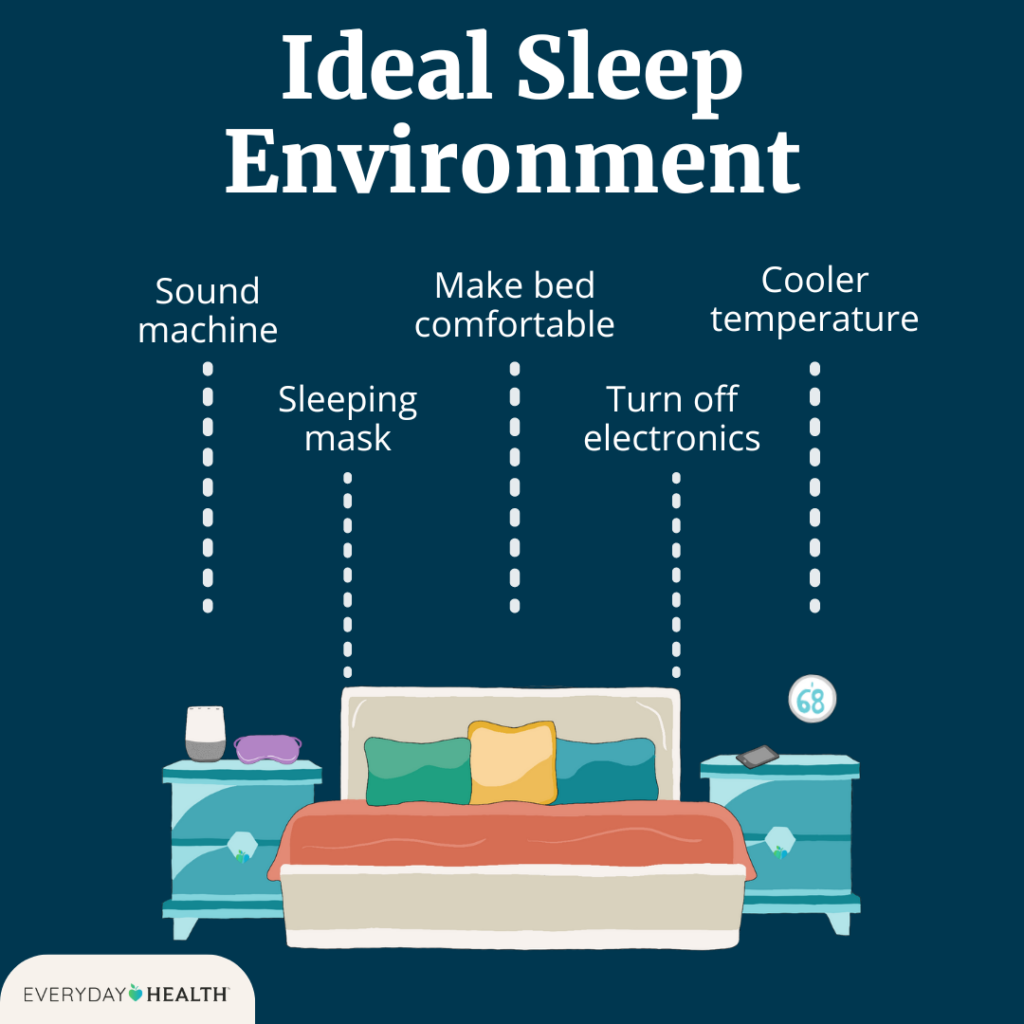As we grow older, sleep becomes one of the most valuable gifts we can give ourselves. It’s no longer just about getting through the day, but about protecting our long-term health, energy, and mood. For many people, the struggle isn’t simply about falling asleep but staying asleep through the night without tossing, turning, or waking up drenched in sweat. According to Dr. Kelvas, a respected sleep expert, one of the most overlooked factors that influences the quality of our sleep is something we rarely give enough thought to: the temperature of the room.

It might sound simple, but the environment we sleep in can shape whether we drift into deep, restorative rest or spend hours staring at the ceiling. The Sleep Foundation has highlighted a specific temperature range that supports optimal sleep—between 60 °F (15.5 °C) and 68 °F (20 °C). Within this range, the body finds it easier to relax, cool down, and shift into the cycles of sleep that restore both the mind and body. Outside of this range, things get complicated. If the room is too hot, you may find yourself waking up repeatedly, kicking off the blankets, or feeling restless without knowing why. If it’s too cold, your body might resist sleep altogether, leaving you curled up uncomfortably, unable to relax fully.
The reason temperature has such a profound effect on sleep lies in our body’s natural thermoregulation system. Our internal thermostat works constantly to keep our core temperature stable, using mechanisms like sweating to cool us down or shivering to warm us up. Blood vessels expand or contract depending on our environment, adjusting blood flow to maintain balance. These functions are subtle during the day, but at night, they become essential. As we prepare to sleep, our body naturally begins to cool down. This drop in temperature signals to the brain that it’s time to wind down. When this process goes smoothly, we’re able to slip into slow-wave sleep—the deepest and most restorative stage. But when the room interferes, either by being too warm or too chilly, this natural cycle is disrupted, and the quality of rest suffers.
Humidity adds another layer to this equation. Anyone who has tried to sleep on a sticky summer night without air conditioning knows how unbearable it can be. High humidity prevents sweat from evaporating, which stops the body from cooling itself properly. This not only leads to discomfort but can reduce the amount of time spent in REM sleep, the stage responsible for memory consolidation and emotional regulation. Over time, poor REM sleep can affect concentration, mood, and even long-term mental health.
On the other hand, sleeping in a cooler environment has an impressive list of benefits. Cooler air encourages the production of melatonin, the hormone that regulates our sleep-wake cycle. At the same time, it helps suppress cortisol, the stress hormone that can keep the mind racing long after the lights are out. Together, these hormonal changes prepare the body for longer, more consistent rest. Cooler temperatures also support the progression into deeper stages of sleep, like REM and slow-wave sleep, which are critical for physical recovery, immune system strength, and mental clarity.

There are even surprising metabolic benefits. When you sleep in a cooler room, your body activates brown fat—a type of fat that burns calories to generate heat. This process helps regulate blood sugar levels, supports healthy weight management, and may even lower the risk of metabolic diseases like type 2 diabetes. Some studies suggest that consistently sleeping in a cool environment might also help reduce the risk of Alzheimer’s disease, adding yet another reason to take the temperature of your bedroom seriously.
Of course, not everyone has access to a thermostat or a perfectly climate-controlled bedroom, but that doesn’t mean you’re powerless. Simple changes can make a big difference. Taking a warm bath or shower before bed might sound counterintuitive, but it actually helps lower your core body temperature. As you step out of the warm water, your body cools rapidly, signaling the brain that it’s time to sleep. Choosing the right bedding also matters. Lightweight, breathable fabrics like cotton or linen allow for better air circulation, preventing you from overheating under heavy covers. If you live somewhere with mild weather, slightly opening a window or using a fan can encourage air movement and keep the room feeling fresh. Even small steps like keeping curtains closed during the day to block heat or adding an extra blanket during cold nights can help maintain a more stable sleep environment.
Scientific research backs up many of these practices. Studies on water-based passive body heating—like warm showers—have shown that they improve how quickly people fall asleep and how efficiently they stay asleep. Similarly, experiments with different room temperatures consistently prove that people not only sleep longer in cooler environments but also report feeling more refreshed and alert the next morning. It’s a reminder that sometimes the simplest solutions, like adjusting your sleeping environment, can have the biggest impact on daily life.
Prioritizing the right room temperature isn’t just about comfort—it’s about overall health and well-being. A cool room can help you drift off faster, stay asleep longer, and cycle through the critical stages of sleep that keep both body and mind in top condition. Imagine waking up after a night of uninterrupted, deep sleep: your mood is lighter, your energy is steady, and your mind feels sharper. That’s the gift of creating the right environment for your body to rest.

So tonight, instead of scrolling endlessly on your phone or worrying about tomorrow’s to-do list, take a moment to prepare your room. Adjust the thermostat, set up a fan, or open a window. Choose bedding that breathes, take a relaxing shower, and let your body do what it’s naturally designed to do—rest deeply and recover. Good sleep doesn’t have to be complicated, and it doesn’t always require expensive solutions. Sometimes it’s as simple as keeping your room a little cooler than you think. Your future self will thank you, and so will the people around you, because nothing radiates more clearly than the calm energy of someone who is truly well-rested.
If you found this information helpful, consider sharing it with your family and friends. Sometimes the people we care about are struggling with sleep without even realizing how much their environment plays a role. A small adjustment to their room temperature might just be the key to giving them better nights and brighter days.






